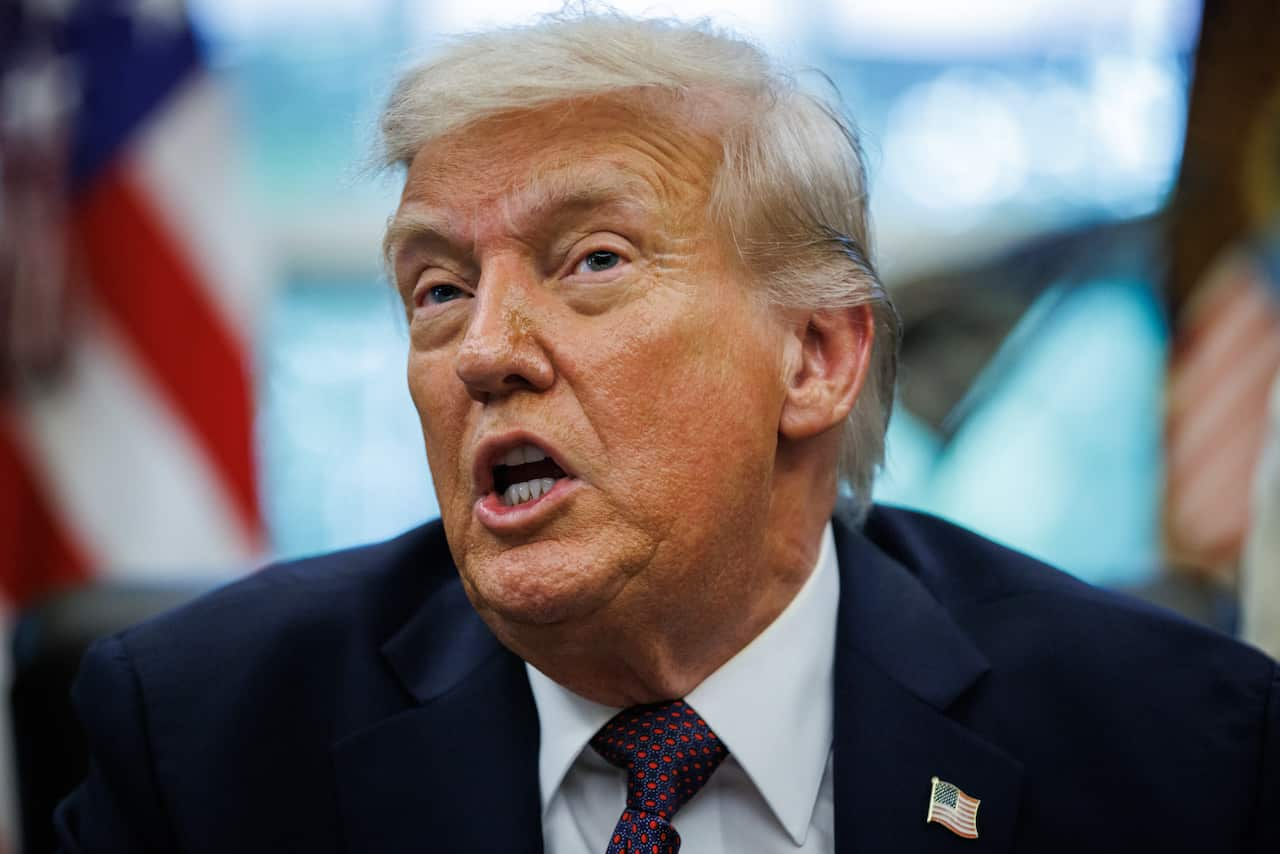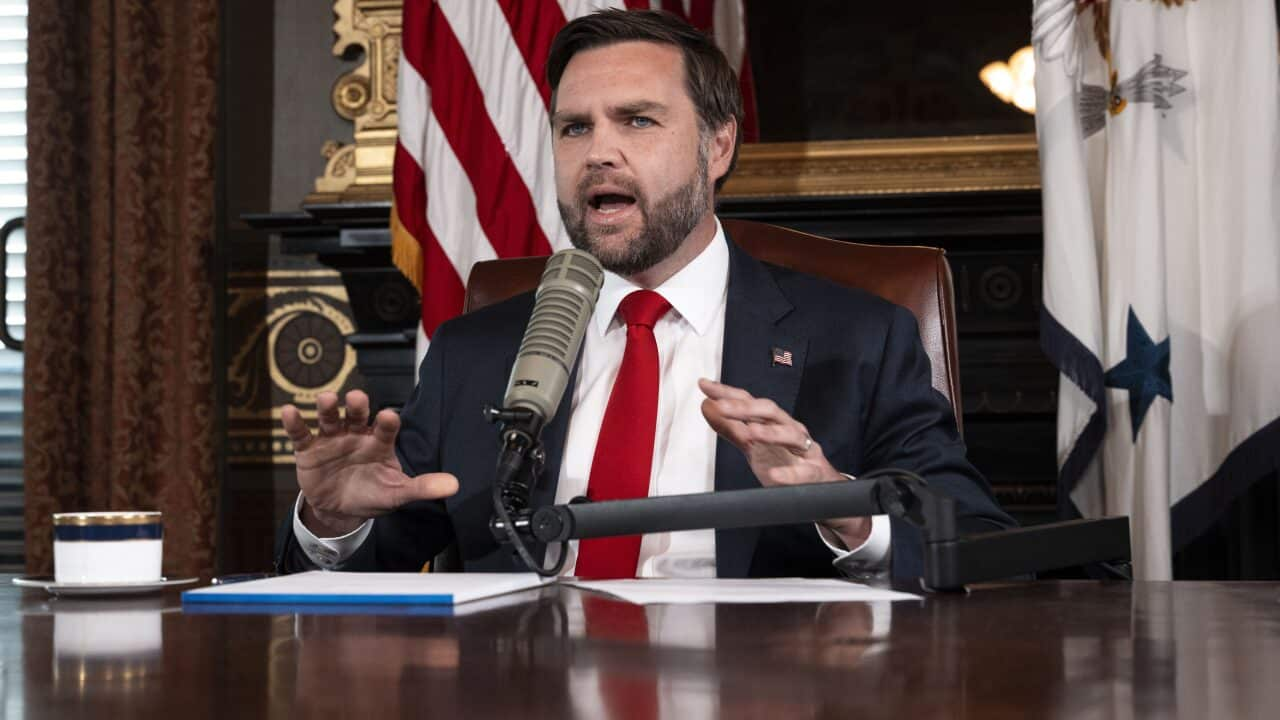It's been one week since right-wing political commentator Charlie Kirk was assassinated while speaking at a university campus in Utah in the United States.
While prosecutors will seek the death penalty for alleged gunman Tyler Robinson, some are concerned President Donald Trump's administration will seek to punish others for Kirk's killing.
Within hours of Kirk's death on Wednesday last week — days before Robinson was taken into custody — prominent right-wing figures in the US had attributed blame for Kirk's death to those on the political left, without evidence.
That included the US president himself, who posted a video on social media in which he accused the "radical left" of expressing rhetoric about people like Kirk that was "directly responsible for the terrorism that we're seeing in our country today".
"Radical-left political violence has hurt too many innocent people and taken too many lives," he said.
On Tuesday, US attorney-general Pam Bondi reiterated Trump's remarks, telling a reporter: "Who killed Charlie? Left-wing radicals. And they will be held accountable."
Charlie Crimston is a senior lecturer in social psychology at the Australian National University. She said accusations of responsibility for violence without evidence could be "extremely dangerous".
"Evidence-free accusations crank up the temperature and model a norm that the other side is an enemy, is evil, not just a political opponent," she told SBS News.
Escalating tension could increase support for further violence and extreme responses, Crimston said.
Bondi's comments came the same day US vice president JD Vance guest-hosted Kirk's long-running podcast in his place, at one point speaking with senior White House official Stephen Miller.
During his appearance, Miller vowed that the government would target an unnamed network of left-wing groups that had fomented and supported violence against conservatives such as Kirk, he argued, without substantiating his claims with evidence.
"We are going to channel all of the anger that we have over the organised campaign that led to this assassination, to uproot and dismantle these terrorist networks," Miller said.
Critics of Trump, including several Democratic politicians, have expressed concern that he and his administration could use Kirk's assassination as a pretext to crack down on political opponents and dissent by tenuously linking them to his murder.
Following Robinson's arrest, Utah's Republican governor Spencer Cox said that, while Robinson had a "leftist ideology", he acted alone. No evidence has since been disclosed to suggest that Robinson was supported by any organisation.
Who could be targeted in a crackdown?
So far, there are few details on who exactly might be targeted by the kind of crackdown Trump's administration is heralding, or how it would be implemented.
Officials have suggested that "non-profit entities" could be targeted, as well as philanthropic organisations.
On Tuesday, Vance singled out two US institutions: Open Society Foundations, funded by billionaire and Democratic donor George Soros, and the Ford Foundation.
He accused both of funding an article in a magazine called The Nation that was critical of Kirk. Both groups said they do not currently fund the publication.

Trump has also said he is considering designating 'antifa' a domestic terrorist organisation, and bringing organised crime charges against those raising funds for alleged "agitation".
Short for anti-fascist, antifa is an umbrella term for decentralised and disparate far-left activists, and is often mentioned in right-wing talking points around violence at protests. There is no evidence that any anti-fascist groups contributed to Kirk's killing.
Emma Shortis, director of the Australia Institute's International and Security Affairs Program, said Vance and Miller calls for "widespread retribution" against the radical left were "straight out of the authoritarian playbook".
"That [radical left] is a term used to encompass, really, any and all opposition to not just the Trump administration, but the broader movement that supports Trump," Shortis told SBS News.
Shortis said she believed Kirk's death — a "horrific act of political violence" — was being weaponised to enact a plan of suppression against those considered political enemies of Trump and his supporters.
It would be a move that's been hinted at for some time.
Last year, in the final days of the presidential election campaign, Trump warned a crowd of supporters at a rally in Wisconsin of "crazy lunatics", who he identified as fascists, Marxists, communists, and those running the country at the time.
He described those groups as "the enemy within", saying they were a bigger threat to the US than Russia or China.
Polarisation and political violence
Kirk's death comes at a time when the US is highly polarised, in which people increasingly see their political opponents not just as people they disagree with, but as existential threats, Crimston said.
"Certain leaders have learned that fuelling division and distrust pays off in the form of attention, donations, and turnout, so they model combative cues that teach supporters to see opponents as enemies ...
"In highly polarised environments, like the US right now, [a political] party can become a 'mega-identity' tied to culture, faith, and lifestyle, so politics isn't just what you believe, it's who you are."
In the wake of Kirk's killing, there have been reports of people in the US being censured for remarks they have made on Kirk's killing.
The Reuters news agency tallied at least 15 people had been fired or suspended from their jobs, based on an examination of interviews, public statements and local press reports. That total includes journalists, academic workers and teachers.
"Prepare to have your whole future professional aspirations ruined if you are sick enough to celebrate his death," said conspiracy theorist Laura Loomer, a prominent ally of Trump and one of several right-wing figures organising digital campaigns on social media site X to publicly shame Kirk's critics.
During his time on Kirk's podcast, Vance encouraged viewers to "get involved" and call out anyone expressing positive sentiments about Kirk's death.
"I don't think it would be too much of a stretch to label what we're seeing in the US as a culture of fear and informal surveillance," Crimston said.
"We should be careful with historical analogies, but encouraging people to monitor and punish dissenting opinions can evoke the low-trust, neighbour-watching-neighbour mood we associate with darker moments in history.
Experts say there are signs political violence is increasing in the US.
In the first six months of the year, the US experienced about 150 politically motivated attacks — nearly twice as many as over the same period last year — according to Mike Jensen, a researcher at the University of Maryland, which has tracked such violence in a terrorism database since 1970.
In June this year, Melissa Hortman, a Democrat-affiliated politician who was the speaker of the Minnesota House of Representatives, was assassinated in her house alongside her husband.
Minnesota governor Tim Walz called the shooting an "act of political violence", and the anti-abortion views of alleged perpetrator Vance Boelter were cited as a possible motive.
Inside Boelter's vehicle, found outside Hortman's residence, was a list of nearly 70 potential targets — including "abortion providers, pro-abortion rights advocates, and lawmakers in Minnesota, Wisconsin, and other states".
Who is responsible for political violence?
Trump's base has made clear attempts to frame political violence as an issue of the left in recent days and Trump himself said on Tuesday that "most of the violence is on the left".
However, multiple independent datasets, spanning decades of political violence in the US and globally, don't support that claim.
More recently, a 2023 Reuters report on instances of political violence since the 6 January 2021 attack on the US Capitol by Trump supporters found that, of 14 fatal political attacks in which the perpetrator or suspect had a clear partisan leaning, 13 were right-wing assailants, and one was on the left.
In the wake of Kirk's death, Trump and his base have faced accusations of focusing only on violence perpetrated against conservative figures.
In his Oval Office address on the day of Kirk's killing, Trump listed several acts of political violence, such as his own assassination attempt last year, and the shooting of Republican politician Steve Scalise by an anti-Trump domestic terrorist in 2017.
He did not reference Hortman's killing, nor an arson attack against Pennsylvania governor Josh Shapiro earlier this year. When asked about Hortman earlier this week, Trump initially said he was "not familiar" with the incident.
— With additional reporting by Rayane Tamer and the Reuters news agency.
For the latest from SBS News, download our app and subscribe to our newsletter.

